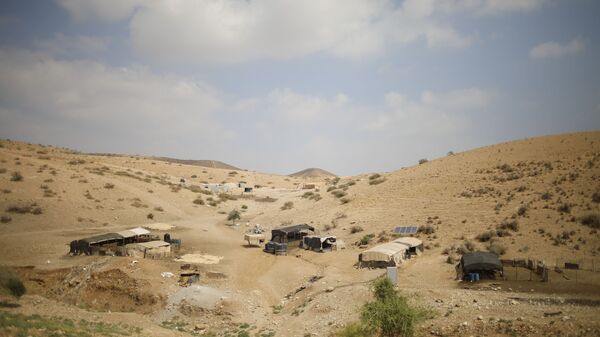In an interview with the magazine Der Spiegel on Friday, Jordan's King Abdulla II warned Israel of a “massive conflict” with the Hashemite Kingdom if the Jewish state proceeds with its extension of sovereignty over certain areas of the West Bank in the coming months.
"Leaders who advocate a one-state solution do not understand what that would mean. What would happen if the Palestinian National Authority collapsed? There would be more chaos and extremism in the region", he said.
The King was apparently referring to the so-called two-state solution which implies establishing two states of Israel and the Palestinians on the disputed territories of the West Bank, including East Jerusalem, and the Gaza Strip.
He made it clear that even though he doesn’t want “to make threats and create a loggerheads atmosphere”, Jordan is “considering all options”.
“We agree with many countries in Europe and the international community that the law of the strongest should not apply in the Middle East”, the King pointed out, recalling that at Arab League gatherings, a one-state solution “is still vehemently rejected”.
“When the one-state solution plan was addressed six or seven months ago, His Majesty the King of Saudi Arabia said that no, we are with the Palestinian state”, King Abdullah II noted.
The remarks came after Jordan's Foreign Minister Ayman al-Safadi underscored the necessity of taking “practical steps that reflect the rejection of any Israeli decision” to extend sovereignty over West Bank areas.
The statement followed EU foreign policy chief Josep Borrell reaffirming the bloc’s support for “a negotiated, two-state solution” and adding that “for this to be possible, unilateral action from either side should be avoided and, for sure, international law should be upheld”.
He also signalled the EU’s readiness to use "all our diplomatic capacities in order to prevent any kind of unilateral action".
Israel May Begin Extending Sovereignty Over West Bank Areas in July
The comments were preceded by Israel’s Prime Minister Benjamin Netanyahu and his main political rival, Benny Gantz, clinching a coalition deal last month which stipulates that the Israeli government can start considering the implementation of West Bank-related extension of sovereignty as of 1 July, in sync with US President Donald Trump's Middle East plan.
Earlier, US Ambassador to Israel David Friedman announced that the Trump administration was ready to recognise Israel’s extension of sovereignty over 30 percent of the West Bank.
Trump revealed his Middle East peace plan in late January, dubbing it the "deal of the century". The blueprint proposes the creation of a Palestinian state alongside Israel, but with its capital on the outskirts of East Jerusalem, rather than inside it. Under the plan, the scattered Palestinian territories would be united by a system of highways, bridges, and tunnels.
Head of the Palestinian Authority Mahmoud Abbas, in turn, rejected the Trump plan, calling it a "Swiss cheese" deal and insisting that it would limit Palestinian sovereignty.
Israel has for decades been in conflict with the Palestinians, who seek diplomatic recognition for their independent state on the territories of the West Bank which were occupied by the Jewish state during the Six-Day War in 1967. Israel has been refusing to recognise Palestine as a state and defying UN resolutions in the process.



